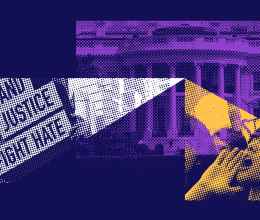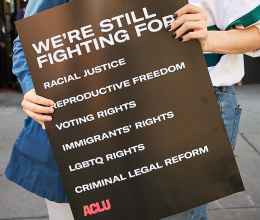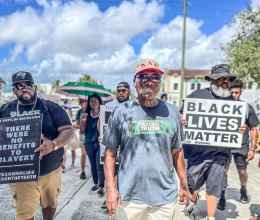
January 23, 2011
Contact: Media Office ACLU of Florida (786) 363-2737 media@aclufl.org
As national political attention turns to Florida this week in preparation for the Florida presidential primary, there are two important things to remember about the state of elections in Florida.
Florida is still the nation’s capital of voter suppression and confusion and currently has completely different voting laws depending on where you live
Because five Florida Counties are covered by the federal Voting Rights Act (VRA) and Florida’s Governor and Secretary of State took the unprecedented step of implementing new election laws before the changes could be approved as required by the VRA, Florida has one set of new voting laws that apply to 62 Counties and the old set that apply to five.
Because of the piecemeal implementation of the law, Republicans in Hillsborough County, for example, began early voting last week while Republicans across Tampa Bay in Pinellas County could not vote in early voting until this week.
The ACLU of Florida is part of two ongoing legal challenges to new voting laws which are known affectionately as the 2011 Voter Suppression Act because they made it harder to register to vote, harder to vote and harder to have your vote counted in Florida.
In part because of the 2011 Voter Suppression Act, the US Senate Judiciary Subcommittee on the Constitution will hold a field hearing in Tampa on January 27th – days before the Republican primary – to highlight how Florida voters are being targeted by new, more restrictive voting laws.
The ACLU of Florida has submitted written testimony to the Committee on the impact of the Voter Suppression Act and will be speak to the media before the hearing.
More Floridians are barred by law from voting than there were ballots cast in the 2012 GOP races Iowa, New Hampshire and South Carolina combined.
Florida is one of only four states with a ban on voting and other civil rights for former felons who have completed every term of their sentence. This issue was brought up by the candidates in a recent debate, and Florida is a sad example of this archaic policy of denying voting rights to Americans.
By most estimates, more than 1 million taxpaying, otherwise eligible voters are banned for life from voting based on a past felony conviction. By contrast, approximately 121,500 votes were cast in Iowa, 248,400 in New Hampshire and 601,200 in South Carolina in the Republican primaries and caucuses for a total of 971,100.







